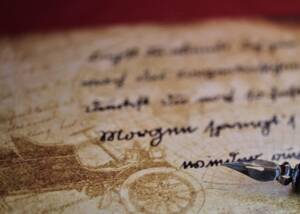Diary - Insights into the History of Private Records
News News blog
Diaries have served as a personal medium for centuries to record experiences, thoughts, and feelings. The history of the diary dates back to the Renaissance, when the growing self-awareness of humans sparked the desire to document their own experiences for themselves.

The Development of the Diary
In the beginning, diaries were more objective chronicles of everyday life. In the 17th and 18th centuries, the records became increasingly personal and reflective. Especially in Pietism, religious diaries served for soul-searching and confession. During the Enlightenment, the diary was understood as a personal account, while sentimental diaries primarily described one's own feelings and perceptions.
The 19th century brought a turn towards the French "journal intime", which focused on self-analysis. Towards the end of the century, the diary became more objective again and served writers as a literary workshop and memory aid.
Diaries as Historical Documents
Especially in the 20th century, marked by world wars and political upheavals, many people used the diary to process the exceptional situation. The most impressive example is certainly the diary of Anne Frank. But many other victims of war and violence also recorded their experiences in diaries, which are now important contemporary historical sources.
Famous Diary Authors
Among the most well-known diarists are writers such as Franz Kafka, Virginia Woolf, and Max Frisch, but also personalities such as the scientists Carl Gustav Jung and Alexander von Humboldt. Their very personal records often provide surprising insights into the lives and thoughts of these individuals.
Diaries Today
Even though the classic paper diary has become less common today, the need to communicate and record experiences remains unbroken. However, the forms have changed: blogs, online diaries, and vlogs continue the tradition of the diary using modern means.
Whether private or public - diaries remain a fascinating medium of self-reflection and documentation of the times. They give us the opportunity to immerse ourselves in the thought worlds of others and at the same time preserve our own experiences for ourselves and perhaps also for future generations.










